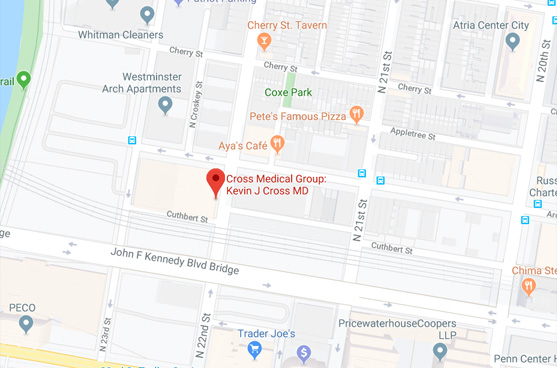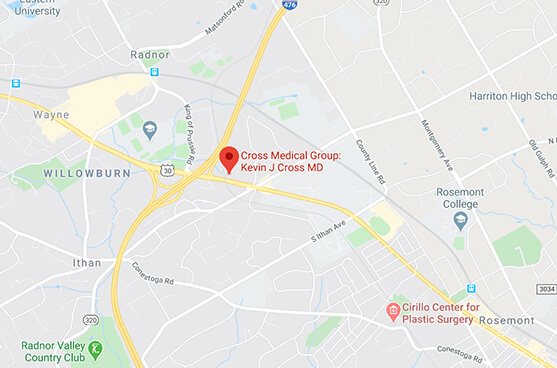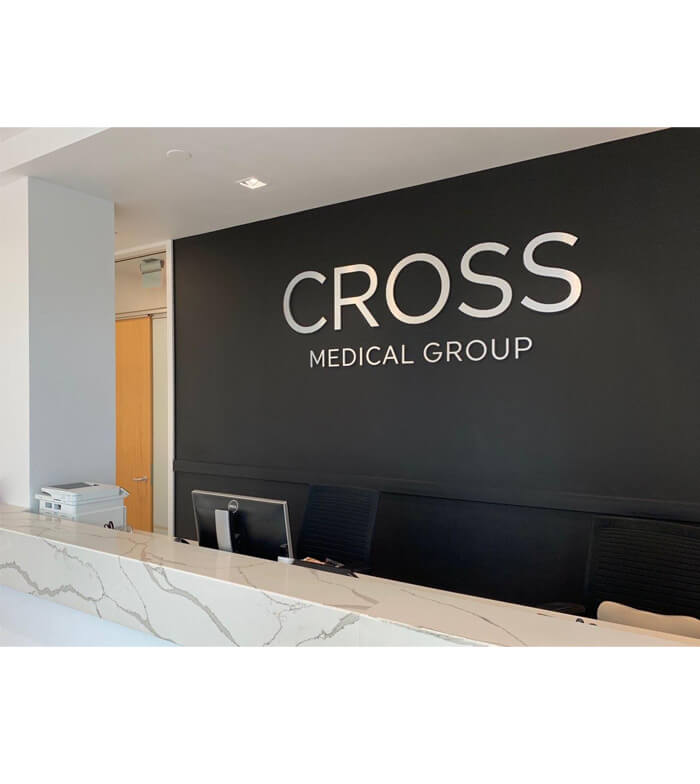Hair Loss Cycle
Learn More About How Hair Grows in Stages and What Can Cause Thinning Hair
Our hair is linked to our self-esteem. Not only is it a part of our body but also often a reflection of our personality or an opportunity for self-expression. For this reason, premature hair loss can often negatively affect our self-confidence. In fact, hair loss can have a major psychological impact even in comparison to other cosmetic concerns. It’s a common cause of dissatisfaction with personal appearance. Some level of hair loss during the hair loss cycle is normal but sudden or increasing loss of hair can be a sign of an underlying health issue. Men and women of all ages can suffer from thinning hair or hair loss. The causes may vary from health issues to diseases, poor diet, age, side effects of medications, genetics, and stress. If you’re trying to understand and find a solution for hair loss, it can be helpful to understand the normal hair loss cycle. The hair restoration team at Cross Medical Group can advise you on everything you need to know about hair loss cycles and growth cycles.
The Hair Loss Cycle: What Are the Stages of Hair Growth and Loss?
Hair follicles are made up of hair bulbs that are supplied with blood and receive hormonal signals that help to keep the hair growth cycle regulated. Hair cells divide and multiple from the bulb, creating the hair shaft.
Everyone loses some hair. In fact, it’s normal to lose up to one hundred hairs a day, though if you are losing a much larger amount, it may be best to see a doctor to determine the cause of your excessive hair shedding. In our effort to gain a better understanding of how to prevent or treat hair loss, the hair loss cycle has been studied in great depth. The hair loss cycle occurs in four distinct stages. In the final stage of the hair loss cycle, old hairs shed and there is room for new hair growth. Although it may seem simple, the hair growth and hair loss cycles are quite complex.
Anagen: Growing Phase
Anagen is the first stage of the hair loss cycle. This is a phase of active growth. Cells in the hair follicles rapidly grow new strands of hair. It is the longest phase, typically lasting for three to five years or sometimes even up to seven years or more. The hair follicle forms a new hair shaft. Most hairs on your head are in this stage of the hair loss cycle at any given time.
Catagen: Transition Phase
The next phase that follows in the hair loss cycle is the catagen phase. This is a transition stage that lasts for around one to two weeks. The hair follicles shrink, and the growth of hair slows.
Telogen: Resting Phase
The resting phase of the hair loss cycle lasts for around three months. Hairs are not actively growing are falling out. The strands of hair remain mostly dormant. Old hair prepares to shed while new hair is preparing to grow back and take its place. New hairs are starting to form in follicles.
Exogen: Shedding Phase
The final stage of the growth and loss cycle is the exogen phase. This is an extension of the telogen phase of the hair loss cycle. Hair sheds from the scalp. Washing and brushing the hair helps to move this phase along. You will usually lose around fifty to one hundred hairs per day during the exogen phase. It may last for around two to five months. New hairs grow as the old hairs shed.
Hair Loss Cycle: How Common is Hair Loss?
Hair loss is highly common. In the United States alone, an estimated eighty million people have androgenic alopecia, the most common form of hair loss. Half of all men experience it by the age of fifty. Forty percent of women experience hair loss. Thinning or shedding hair can cause feelings of fear, anxiety, and embarrassment.
SCHEDULE A CONSULTATION
For more information about the hair loss cycle, contact Cross Medical Group in Philadelphia (215) 561-9100 or Main Line’s Villanova (610) 688-9100. You can also send a message online to inquire about a consultation, or to request more information.
Preventing the Hair Loss Cycle: What Are the Causes of Hair Loss?
There are certain conditions that can disrupt the stages of the hair loss cycle. If hair loss runs in your family, you could potentially lose more hair. In fact, most of the time, losing more hair than normal during your hair loss cycle is likely to be inherited.
Alopecia is the medical term for hair loss from the scalp or body. These many variations of alopecia and some are temporary while others have more lasting effects. External factors such as trauma or stress, or internal factors such as hormonal imbalances or aging can cause hair follicles to be damaged, resulting in hair loss. Androgenetic alopecia – male pattern baldness or hair loss and female pattern baldness or hair loss – is a hereditary condition that is the most common type of hair loss.
Hair Loss Cycle: Signs and Symptoms of Hair Loss
If a hair loss disorder is affecting your hair loss cycle, the symptoms will vary depending on what type of condition you have. The different types of hair loss can manifest themselves in different ways. The loss of hair from the scalp is the most prominent cosmetic concern. You may notice the hairs or clumps of hair are falling out. This hair might be lost from the entire scalp or only one area. In men, there may be bald patches and a receding hairline while women may notice thinning hair.
Hair Loss Cycle: Which Treatments Are Most Effective for Preventing Hair Loss?
Individuals who are experiencing hair loss may be seeking treatments for both cosmetic and medical reasons. When you meet with our Cross Medical Group team for a hair loss consultation, we can provide more in-depth information on the hair loss cycle and hair growth cycle. Our team will help you get an accurate diagnosis and find the best solution for the condition that may be affecting your hair loss cycle. Though it may not always be possible to prevent hair loss, there are ways to restore thicker, healthier, and shinier hair if a disorder is affecting your hair loss cycle. Hair loss cycle treatments are designed to restore your hair’s health and appearance. Options include topical treatments, medicated shampoos, oral medications, hair transplants, laser or light-therapy, and platelet-rich plasma (PRP) treatments.
Hair Loss Cycle: Which Other Treatments are Available from Cross Medical Group?
Along with providing in-depth advice about the hair loss cycle and treatments for hair thinning or shedding, Cross Medical Group also offers a vast array of surgical and non-surgical cosmetic procedures. Cosmetic procedures such as facelift, brow lift, blepharoplasty, and rhinoplasty can enhance and reinvigorate the face. There are also many other popular forms of cosmetic surgery for the breasts and body including breast augmentation, breast reduction, tummy tuck, liposuction, and Mommy Makeover surgery to improve the overall shape of the upper and lower body.
SCHEDULE A CONSULTATION
Would you like to find out more about the hair loss cycle? Contact Cross Medical Group in Philadelphia (215) 561-9100 or Main Line’s Villanova (610) 688-9100. You can also send a message online to inquire about a consultation, or to request more information.








